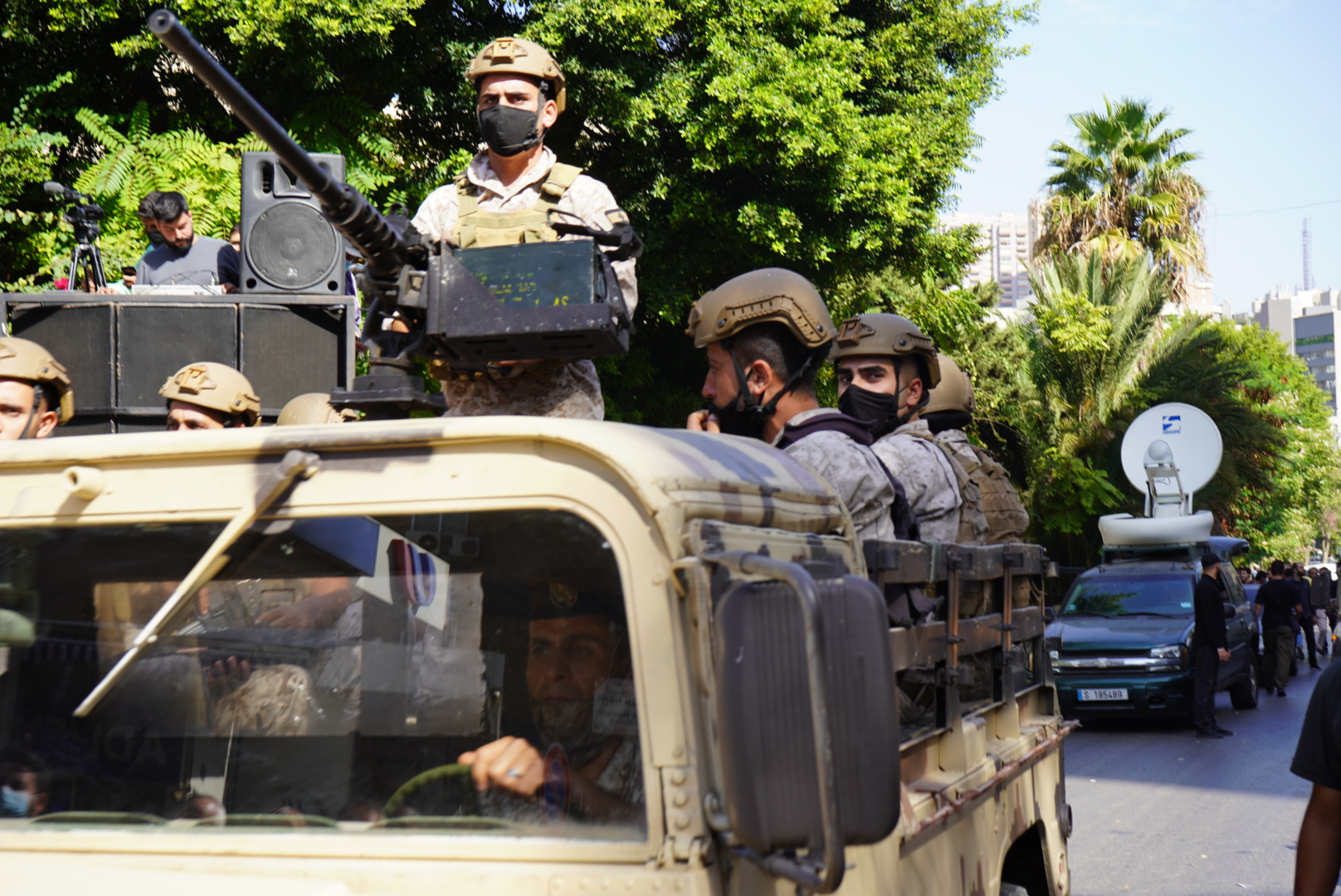︎ The Media Line Reports from Beirut’s Ravaged Streets: At Least 6 Dead in Attack on Protest
THE MEDIA LINE
“The clashes in the Tayouneh neighborhood, where the protests eventually moved, devolved rapidly. Videos have circulated that show RPG’s being fired and people being felled by unseen gunmen.
Ali Muhammad, a man in his 20s, also from the Dahieh district, told The Media Line that “there will be double the numbers tonight,” referring to the dead, while raising two fingers.
“Only with blood will things go right,” he concluded.
No one expects Beirut to return to normal the day after the deadly protest. Businesses were set to be closed on Friday as part of a day of mourning called by the prime minister for the six people killed in the violence. In light of the economic issues that have been plaguing Lebanon for the past two years, many fear that Thursday’s protest will be the flashpoint of a descent into sustained violence.”
Ali Muhammad, a man in his 20s, also from the Dahieh district, told The Media Line that “there will be double the numbers tonight,” referring to the dead, while raising two fingers.
“Only with blood will things go right,” he concluded.
No one expects Beirut to return to normal the day after the deadly protest. Businesses were set to be closed on Friday as part of a day of mourning called by the prime minister for the six people killed in the violence. In light of the economic issues that have been plaguing Lebanon for the past two years, many fear that Thursday’s protest will be the flashpoint of a descent into sustained violence.”

“Iran reportedly delivered GPS components to Hezbollah in Lebanon that will allow the group to transform rudimentary projectiles into precision-guided missiles, thereby increasing the threat to Israel. Western intelligence services believe Tehran has shifted its strategy by increasingly shipping weaponry directly to its proxy in Beirut, with a view to evading Israeli air strikes.
The Israel Defense Forces has over the past two years conducted hundreds of attacks in Syria to prevent such arms deliveries.
Meanwhile, Russia last week upped its military support to the Assad regime with the transfer of three S-300PM-2 missile batteries whose radar and communication technologies are more sophisticated than those of the model deployed to Syria at the beginning of the month.”
The Israel Defense Forces has over the past two years conducted hundreds of attacks in Syria to prevent such arms deliveries.
Meanwhile, Russia last week upped its military support to the Assad regime with the transfer of three S-300PM-2 missile batteries whose radar and communication technologies are more sophisticated than those of the model deployed to Syria at the beginning of the month.”
“It doesn’t take long over the course of a conversation with young and old people alike to arrive at the tragic confession that “there is no future for me here.” Those who had previously been able to work towards improving their means and their educations are being driven to uncomfortable decisions by an overwhelming sense of stagnation, of having their lives unduly paused. Facing restrictive visa policies, Lebanese migrants have had to get creative. The American University of Beirut’s Crisis Observatory has warned that it is likely that the third mass exodus since the late 19th century has begun.
The nearby island of Cyprus is on the daily receiving Lebanese families seeking more stable conditions. Many young people have opted to escape the economic and social distress using student visas by pursuing graduate degrees abroad. Some in the LGBT community are applying for political asylum in Western countries, having resigned themselves to the reality that they will not be able to return to visit Lebanon until they adjust their status in their new homes, often a period of about five years. Multiple friends have told me that farewell parties are on the decline, not because fewer people are leaving, but because those who stay are exhausted of saying goodbye.”
The nearby island of Cyprus is on the daily receiving Lebanese families seeking more stable conditions. Many young people have opted to escape the economic and social distress using student visas by pursuing graduate degrees abroad. Some in the LGBT community are applying for political asylum in Western countries, having resigned themselves to the reality that they will not be able to return to visit Lebanon until they adjust their status in their new homes, often a period of about five years. Multiple friends have told me that farewell parties are on the decline, not because fewer people are leaving, but because those who stay are exhausted of saying goodbye.”